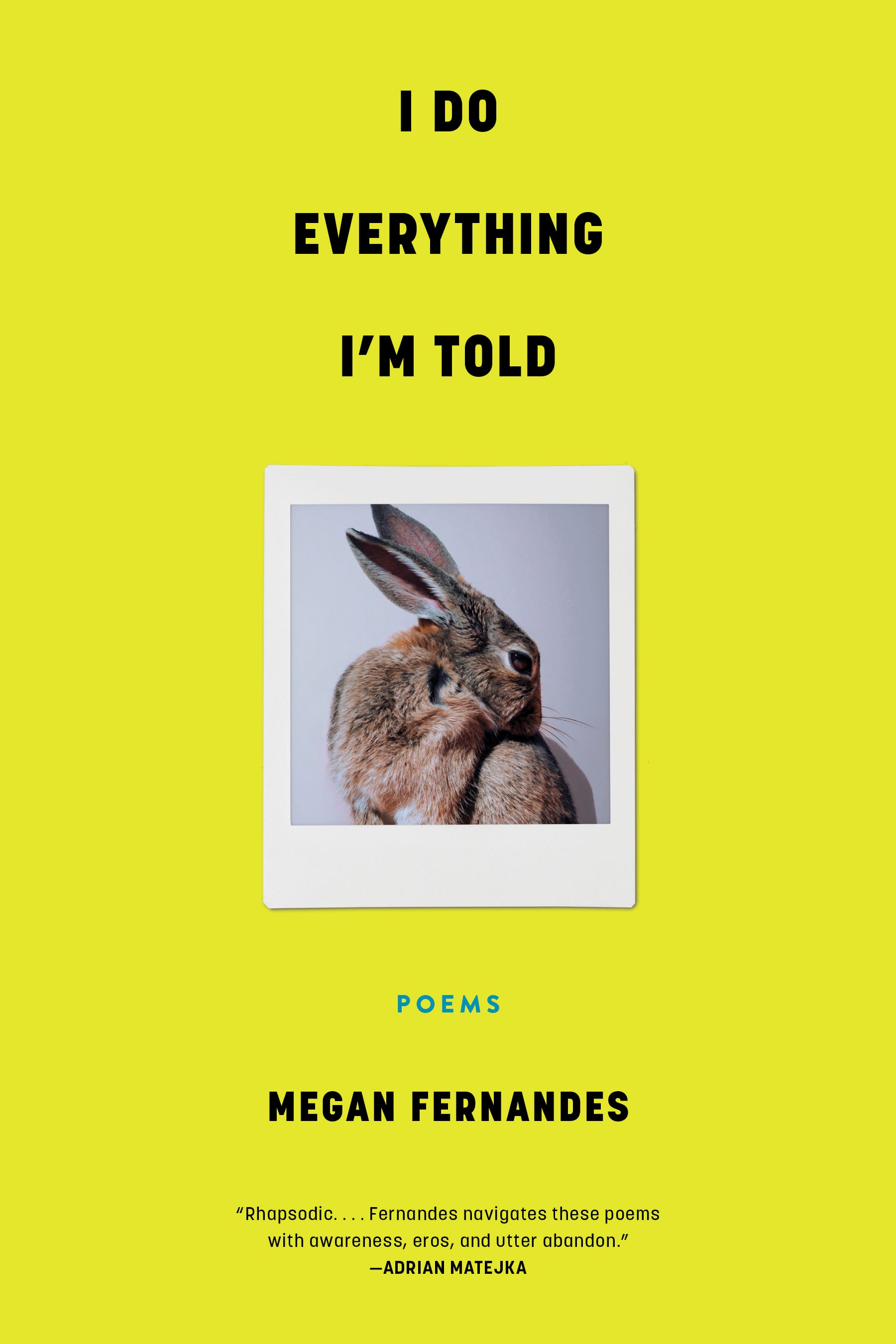Book Review: Erudite but accessible, Megan Fernandes’ new book will turn poetry agnostics into fans
Megan Fernandes is the kind of poet who will make you want to swear off novels and Netflix and only read poetry

“I Do Everything I’m Told” by Megan Fernandes (Tin House)
Megan Fernandes’ new book, “I Do Everything I’m Told,” is a collection of unruly, irreverent love poems — to the speaker’s younger self, her former lovers and the child she aborted. Divided into four sections, it includes a sequence of sonnets that begins in Shanghai and touches down in cities across the globe.
In Paris, she recalls a lover who told her, “I used to beat women,” and her belated realization “that people who read Marx can also beat women.” Certain refrains recur: “Bad weather is a gift.” “Nobody tells you how to raise a dark child.” Clearly, the speaker is dark herself. She craves absolutes. She speaks in adages. But she also understands they don’t exist: “The first person we love is just that: first.”
Fernandes, an English professor and writer-in-residence at Lafayette College, has an unforgettable voice, filled with intense longing for both the sacred and profane. Her poems pay tribute to Rilke, Rimbaud, Brodsky and Ginsberg but also to pop culture figures like Frank Ocean, the Fugees, Lil Wayne and The Cars.
Nature enthralls her in “Catskills”: “Tonight, I bow to a choir of trees, a majestic grove of evergreens who feed nightly on stars.” But it frightens her in “Beggars and Choosers,” where she pictures COVID-infected lungs in the pandemic: “glass opacity, x-rays of snow.”
In “Orlando,” one of the most moving poems in the book, the speaker daydreams about the abortion she had 14 years ago and an alternate life in which the child was born. “I have no regrets, but I wonder if he’s waiting in the sky somewhere or doing blow in another dimension where he’s a rocker and very much flesh.”
She presents her rationale for the abortion to this non-existent child, who personifies Frost’s “road not taken”: “I don’t believe in kin by blood, but I believe poems can give form to the formless, that one can resurrect roads not taken in a line and give it a name.”
What name? How about Orlando, the title of this poem and a novel by Virginia Woolf, who famously spoke of the need for a woman to have “a room of one’s own” to become an artist. Fernandes imagines this impertinent teenager waving her off but maybe reading “Orlando” in college someday and thinking “about his young mother who wanted to be a writer and what she might have had to give up in order to raise him at 23.”
Readers will be grateful that nothing stopped her from realizing her dream.
Bookmark popover
Removed from bookmarks